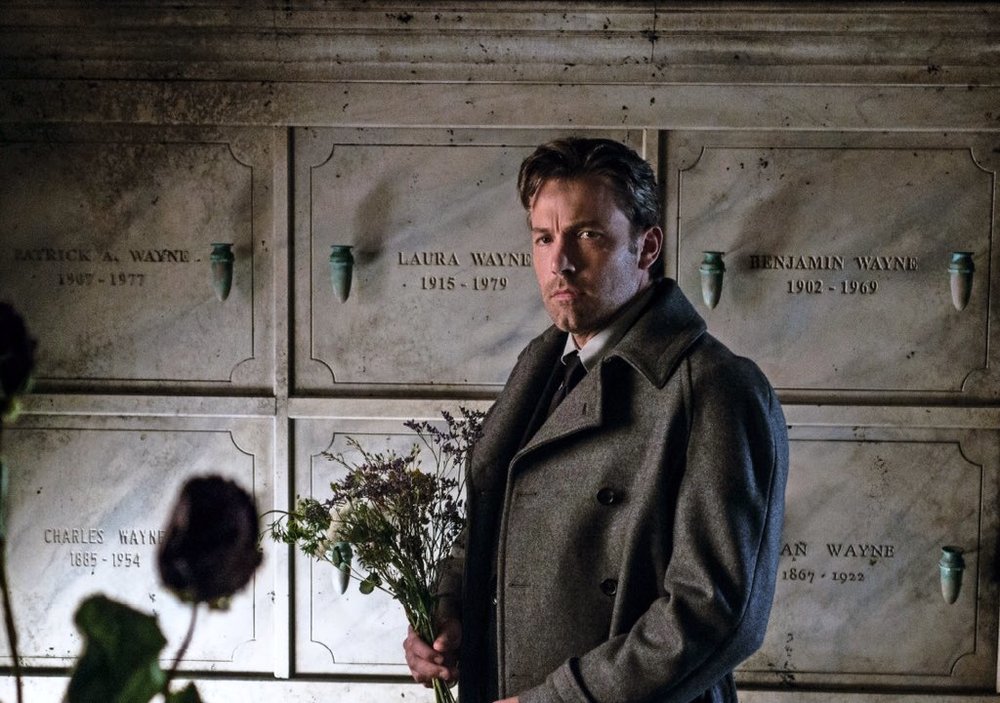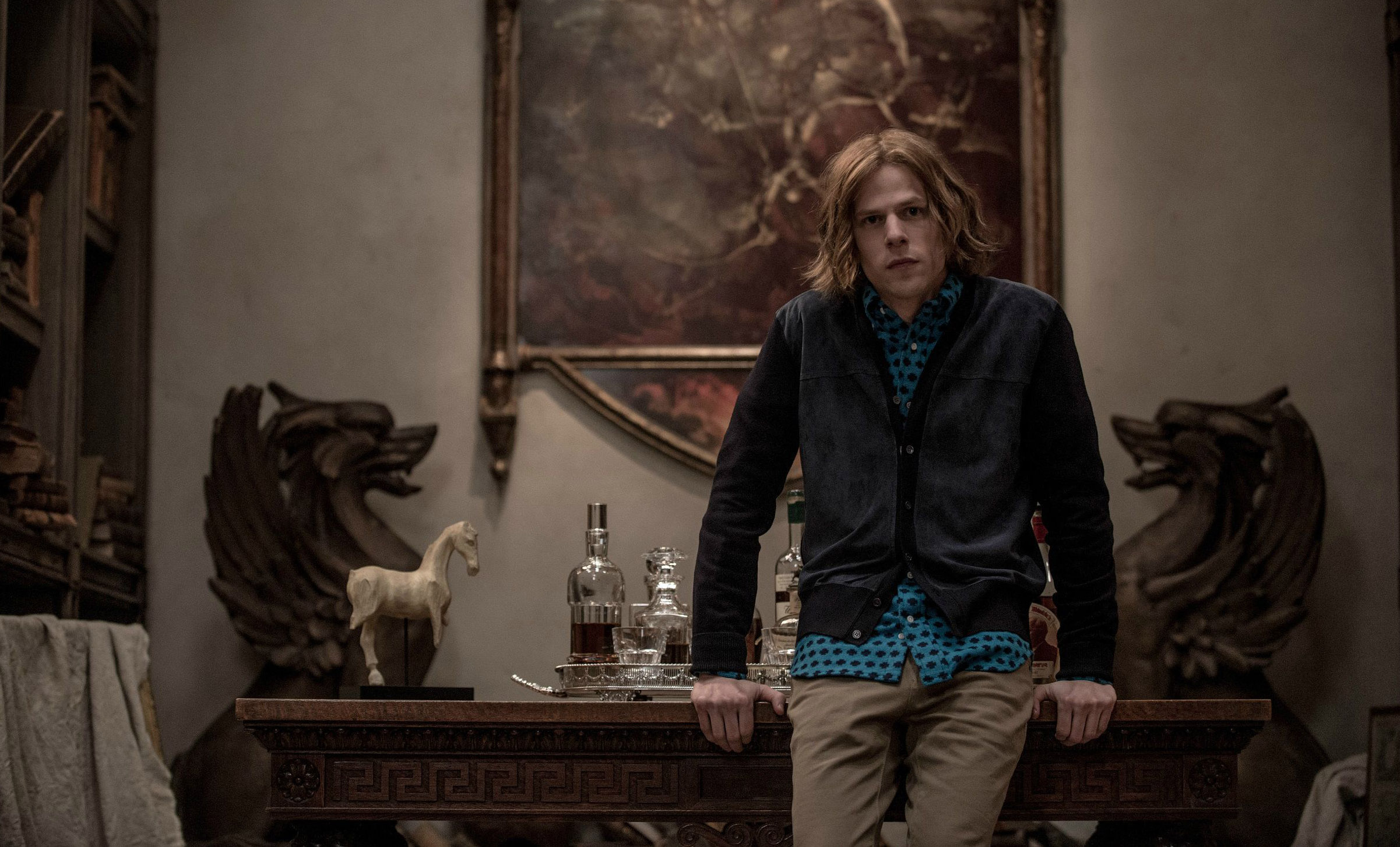REVIEW: 'Batman v Superman: Dawn of Justice' throws together a half-baked pantheon
If I had to guess, a fair number of fans of the DC Comics film universe are starting to grasp for justifications for Batman v Superman: Dawn of Justice. They’ll point to how the movie tries to engage with the political nature of superheroes. They might single out how hard director Zack Snyder works to fill his film with connective tissue for the sequels Warner Brothers is planning. Or they might default to the age-old defense of Snyder, that his films just “look pretty”.
These things are all true, but they don’t do much to improve the overall experience. First and foremost, Batman v Superman is a jumble of ideas – some of them good – assembled in the most frustrating order and then abandoned in favour of an old-fashioned smash-‘em-up super-fight. It steadfastly resists attempts to enjoy it by giving us an even less likable Superman (Henry Cavill) than the one found in Man of Steel, and slips in an utterly tone-deaf characterization of Lex Luthor (Jesse Eisenberg) to oppose him.
It gives us a rather watchable Batman (Ben Affleck) with a plausible grudge against the Last Son of Krypton, only to have him drop his convictions under the silliest of pretenses. And (as we might have expected) it sidelines its only female characters – Wonder Woman (Gal Gadot) and Lois Lane (Amy Adams) - so they contribute the bare minimum to the story. It’s such a slog that I’m surprised I was ever thrilled by Snyder’s clever reveal of the film at the San Diego Comic-Con in 2013.
The excitement at that Comic-Con panel was driven by the film’s alleged source material, Frank Miller’s essential graphic novel The Dark Knight Returns. In the comic, Batman is old and in retirement, but he’s coaxed back into action by a new threat in Gotham City. This eventually puts him in conflict with Superman, who’s become a Cold War tool of a quasi-totalitarian American government. Miller’s blending of politics with pop culture was gripping, and it re-established the ideological backbone that the comics might have lost in their goofier periods.
So, can Batman v Superman lay claim to any of the powerful themes in The Dark Knight Returns? Admittedly, Snyder always denied his film would be a direct adaptation, but it’s uncanny how consistently the film taps into the source material for a few brief moments, only to throw it away and run off to its next thought.
In fact, it spends the first two hours of its runtime cobbling together a seemingly never-ending stream of unrelated scenes. There’s some material about hero worship, some references to xenophobia, and some lip service paid to pre-emptive military strikes. The effect is schizophrenic: just when we’re getting into one story thread, we jump to other voices in different parts of the narrative, which defuses the tension. When this builds to a Congressional hearing about Superman’s activities, as we’re about to get into the “democratic discussion” that Senator Finch (Holly Hunter) spends much of the early parts of the film advocating for, the film decides to blow everything up, ostensibly because it’s easier than scripting a real debate.

How do the two leads make out? Batman is, as he has been for years, the more digestible of the two. Affleck’s version of the character is distinct from his predecessors, and a standalone Bat-film directed by Affleck would likely be quite a show. But Affleck’s work is overshadowed by a Superman who’s only gotten less fun and more opaque since his first appearance in 2013, and they are trapped in a film with far too many accompanying problems.
When the third act and the titular battle finally arrive, the movie finally gains something like narrative cohesion, except it does so at the expense of all the politics and philosophy that it was trying to incorporate. Batman and Superman find themselves going hand-to-hand almost by mistake (or rather, after a nonsensical move by Luthor), and at the end of the crashing and banging, Batman only stops because – I KID YOU NOT – he’s reminded that his and Superman’s mothers share the same first name.
I mean…what netherworld are we living in? Despite Snyder’s frequent invocations that comic books represent the missing mythology of gods and monsters in American culture, he can’t conceive of a story where the characters inhabit a logical universe. Is it so hard for two characters to fight to a stalemate, and then acknowledge the errors in their judgment? Why have their battle and subsequent partnership swing on a trivial detail like the names of characters seen in glorified cameos?
Perhaps in the spirit of dumping in whatever malformed concepts pop into his head, Snyder weaves in some borderline-inexplicable dream sequences for Batman, the chief of which features him being captured in some post-apocalyptic wasteland by Superman-affiliated Stormtroopers and mutated bug/robot soldiers. Yes – you read that right. Is it a reference to some upcoming plot detail in the Justice League films? An exaggerated vision of the central strife between Batman and Superman? The film certainly isn’t sure, and so we can’t be either. Once again, an idea with potential is crossbred with the otherwise hulking deformity of the film, which only makes the whole thing uglier.

When Man of Steel arrived in 2013, I thought I had a fairly distinct picture of the way the DC films would work. Maybe they’d be more brooding than the Marvel films, but they’d still feel like part of the superhero genre. Batman and Superman would have grudging respect for each other. Big social issues would be covered, using the frame of people living in a world with fantastical powers.
Now, with Batman v Superman behind us, I have no idea what the future holds for DC characters at the movies. There’s still hope that the films centred on characters like Wonder Woman, the Flash and Aquaman might turn the franchise away from its current path. But if the series keeps the DNA of Snyder’s contributions, the series is set to bog itself down in narrative contradictions and joyless action – superhero films for people who love to hate both superheroes and films.
Batman v Superman: Dawn of Justice gets one and a half stars out of four.

What did you think of the latest entry in the DC film universe? Does it live up to the fan expectations and offer a challenge to the Marvel series? Or does it do a disservice to the great stories that were available to the filmmakers? Join the discussion in the comments section, and if you liked this review, share it with your friends and followers!